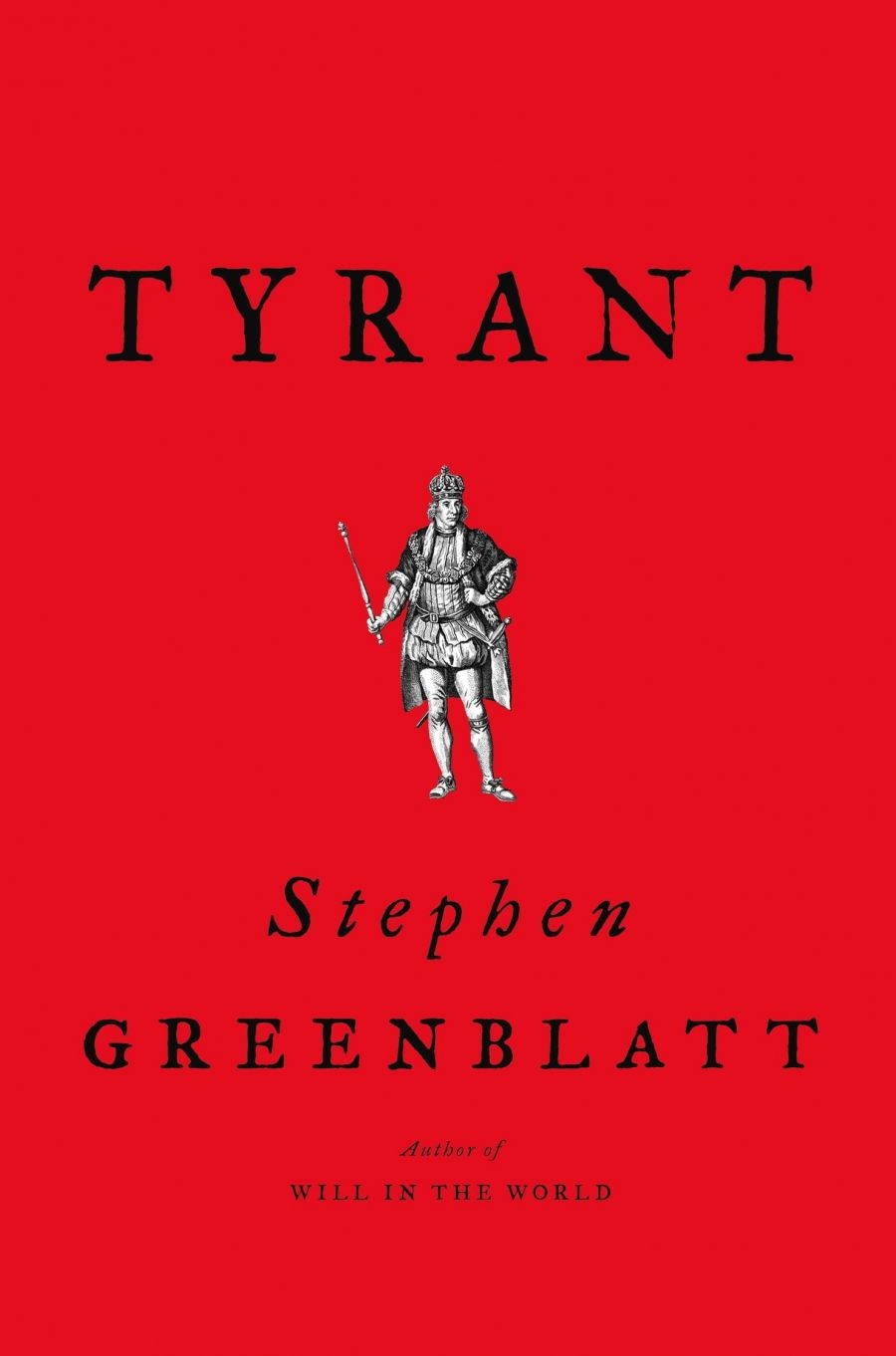
- Free Article: No
- Contents Category: Shakespeare
- Custom Article Title: David McInnis reviews <em>Tyrant: Shakespeare on Power</em> by Stephen Greenblatt
- Review Article: Yes
- Online Only: No
- Custom Highlight Text:
In 2017, Oskar Eustis directed the Public Theater production of Julius Caesar – a play that pivots on the assassination of a political leader – in Central Park with a lead actor who bore an unmistakable likeness to the forty-fifth president of the United States. The conservative backlash was swift and powerful ...
- Book 1 Title: Tyrant: Shakespeare on Power
- Book 1 Biblio: Bodley Head, $37.99 hb, 224 pp, 9781847925046
This is not just cheap political point-scoring, however; on one level, it is a study of Shakespeare’s techniques, and the positive value (rather than political expediency) of what Greenblatt dubs ‘oblique angles’. By this he means the temporal-spatial displacements of hot political issues – that is, the benefits as well as the necessity of dramatising classical antiquity, Catholic Verona, medieval Elsinore, and so forth, at a time when the portrayal of contemporary England on stage was strictly forbidden. Greenblatt’s ostensible purpose is not merely to critique current regimes through an oblique angle of his own (Shakespeare’s works). Rather, the invective is couched in terms of the search for salvation: the hope that Shakespeare’s depictions of such tyranny might prove enlightening in their exploration of ‘the desperate, painful, heroic measures required to return a damaged nation to some modicum of health’.
 Stephen GreenblattThrough readings of party politics in the Henry VI plays, Greenblatt argues that ‘[p]arty warfare cynically makes use of class warfare’ to divide and disenfranchise the ‘ignorant lower classes’, and he critiques the ‘cynical exploitation’ of false populism embodied by the rebel Jack Cade’s use of secrecy, absurd promises, and lies in his uprising. A tyrant’s ability to insinuate himself into the minds of those around him, and the role enablers play (whether through fear or impotence) in consolidating the tyrant’s power, is explored in chapters on Richard III. Warnings for the present are implied throughout: ‘the new ruler possesses neither administrative ability nor diplomatic skill, and no one in his entourage can supply what he manifestly lacks’. Accounts of Macbeth, Lear, Leontes, and others are mined for Shakespeare’s insights into a tyrant’s rise to power, their behaviour once empowered, and their fundamental moral and psychological characteristics. Written more for a general audience than an academic readership, Greenblatt’s Tyrant necessarily includes a great deal of contextualising description as he summarises the plot of The Winter’s Tale (for example) in order to explore the actions of ‘an autocratic, paranoid, narcissistic ruler’ who ‘does not need to traffic in facts’.
Stephen GreenblattThrough readings of party politics in the Henry VI plays, Greenblatt argues that ‘[p]arty warfare cynically makes use of class warfare’ to divide and disenfranchise the ‘ignorant lower classes’, and he critiques the ‘cynical exploitation’ of false populism embodied by the rebel Jack Cade’s use of secrecy, absurd promises, and lies in his uprising. A tyrant’s ability to insinuate himself into the minds of those around him, and the role enablers play (whether through fear or impotence) in consolidating the tyrant’s power, is explored in chapters on Richard III. Warnings for the present are implied throughout: ‘the new ruler possesses neither administrative ability nor diplomatic skill, and no one in his entourage can supply what he manifestly lacks’. Accounts of Macbeth, Lear, Leontes, and others are mined for Shakespeare’s insights into a tyrant’s rise to power, their behaviour once empowered, and their fundamental moral and psychological characteristics. Written more for a general audience than an academic readership, Greenblatt’s Tyrant necessarily includes a great deal of contextualising description as he summarises the plot of The Winter’s Tale (for example) in order to explore the actions of ‘an autocratic, paranoid, narcissistic ruler’ who ‘does not need to traffic in facts’.
Greenblatt’s final chapters document strategies of resistance, including ‘fantasy solutions’ (the reformation of the tyrant), pre-emptive strikes (Julius Caesar), the harnessing of tyrannical qualities for good (Coriolanus), and slipping away in self-imposed exile to gather strength before an invasion (Lucius in Titus, Malcolm in Macbeth, Cordelia in Lear), in the manner of ‘resistance fighters in Nazi Germany, Vichy France’, and elsewhere. But perhaps the most reassuring observation pertains not to any active strategy that might be used to curb a tyrant’s impact, but to the inherently limited nature of tyrannical power:
Shakespeare did not think that tyrants ever lasted very long. However cunning they were in their rise, once in power they were surprisingly incompetent. Possessing no vision for the country they ruled, they were incapable of fashioning enduring support.
Let’s hope Shakespeare was right.


Comments powered by CComment